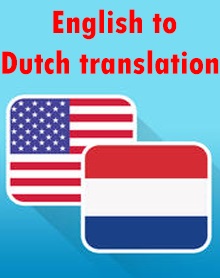There are a couple of key highlights of the language which make Dutch interpretation genuinely straightforward and simple. The Dutch language, similar to the English language, is Germanic in its root (contrasted with the numerous Latin based European Romance dialects). Actually Dutch is so near both German and English that it’s said to sit directly in the focal point of those two, holding a large portion of the qualities of both.

Exclusive on arienne_article
The Dutch language additionally utilizes a variation of the Latin letter set, as does English and most of the significant European dialects. Linguistically Dutch tends nearer to German than to English, in spite of the way that Dutch doesn’t include a portion of the more unmistakable syntactic signs of German, (for example, a similar case use). Dutch uses a comparable sentence structure to German and they additionally use action words in basically a similar way. In spite of inclining nearer to German, throughout the years the Dutch language has rearranged and has started to take on more attributes and words from English and the encompassing Romance dialects. While it is fundamentally the same as German, Dutch is at last a perceptibly more straightforward language than its parent, making Dutch interpretation into English less difficult than German interpretation into English.
While the general linguistic structure of Dutch is easier than German, and keeping in mind that its jargon has obtained terms from the Romance dialects, the Dutch language jargon holds the German inclination to make huge compound things when naming new articles and ideas entering the language. Notwithstanding the way that Dutch has a huge jargon totaling admirably more than 400,000 words, the language can appear to be scaring to take in and to interpret from. The Romance words and expressions that Dutch has taken on have to a great extent been acquired from the French language, and for the most part went into Dutch because of the degree of glory that French culture held among the Dutch high society. Lately the act of obtaining words from French has eased back down and been supplanted with the act of acquiring words from English, particularly among the lower and white collar class speakers.know more Spanish translation.
While Dutch interpretation stays a difficult and threatening undertaking for some because of its profound association with the troublesome and confounding German language, the assignment appears to getting simpler over the long haul. As an ever increasing number of English words are received entire into Dutch, and as the Dutch language as a linguistic substance keeps on rearranging, the way toward deciphering between these two dialects will get less complex and simpler. In any case, as in any necessary interpretation, it will stay a smart thought to consistently use an expert interpretation organization to guarantee you get the most precise and socially delicate interpretation conceivable.